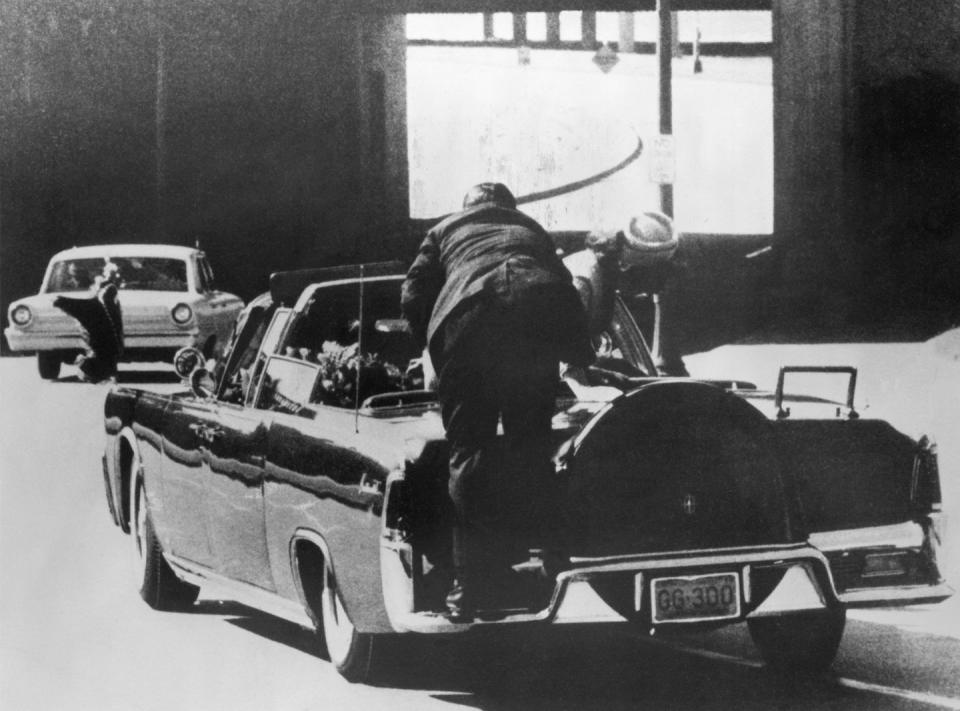What Rights Do Secret Service Agents Have?

Update: On November 13, the Washington Post reported that more than 130 Secret Service agents were ordered to isolate or quarantine because they tested positive for Covid-19 or came into close contact with infected co-workers. The spread is believed to be linked to campaign rallies that President Trump held in the ramp-up to the November 3 election. In recent weeks, many members of the President's inner circle—including White House Senior Advisor Stephen Miller, White House Press Secretary Kayleigh McEnany—have tested positive for Covid-19.
On Sunday October 4, President Trump briefly left Walter Reed National Military Medical Center, where he was being treated for Covid-19, and got into a black SUV to drive past a crowd of supporters who had gathered outside the hospital. The windows of the vehicle were kept closed, but onlookers and camera crews were able to see Trump in the back seat, wearing a mask and waving. They were also able to see one of two Secret Service agents seated in the front of the car a few feet from the President, wearing a N-95 mask and protective eye gear and staring straight ahead.
It was supposed to be a show of strength and gratitude to political supporters, but the photo op was quickly met with harsh criticism as members of the medical community expressed alarm at the risk of infection the ride posed for the two members of the President's protection detail. Dr. James Phillips, an attending physician at Walter Reed who is serves as chief of disaster medicine at George Washington University, called the event, "political theater."
The White House disputed claims that the President's decision contradicted medical guidance. “Appropriate precautions were taken in the execution of this movement to protect the President and all those supporting it, including PPE,” Judd Deere, a White House spokesman, told the New York Times via email on Sunday night. “The movement was cleared by the medical team as safe to do.”
The public is accustomed to seeing members of the Secret Service scanning crowds, running alongside motorcades, and even tackling gunmen. Personal risk is part of their job. But what happens if the danger comes from the President? Can an agent contradict a President's wishes or alter their own protective measures? And are there any circumstances in which an agent could refuse an order?
Town & Country asked Chris Falkenberg, a former special agent in the United States Secret Service and founder of Insite Risk Management, about the dangers facing agents and the spoken and unspoken rules of serving in the Secret Service.

So first of all, can the President refuse protection?
The President is obligated by law to have Secret Service protection. Vice President Pence, former President Bill Clinton, former First Lady Laura Bush, they are all Secret Service protectees, but they can say, "I don't want you anymore," and the Secret Service says, "Thank you very much, goodbye." The President may not do that. So the President is sort of stuck with the Secret Service.
Can the President ask for certain measures to be modified?
There are plenty of agents who have counseled a President not to do something he wanted to do. That happens all the time. And those disputes are resolved one way or the other, and they're not always resolved in the favor of the Secret Service.
For example, if there is an event plan where the President is going to walk on an elevated stage from a podium to a seating area, and the Secret Service says, "This is really bad. We have no high ground coverage, there's a lot of exposure to small arms fire, we cannot secure these areas, and it is not safe," the [White House] staff has definitely said, "All right, we'll move it around, we'll find something else."
I imagine there have been times in the almost 120 years that the Secret Service has been doing this job that the staff has said, "Find a way to do it. The President is going to do this, you're not going to tell them not to do it, so make it work."


Can you imagine a situation in which an agent would say, "This puts my life at risk," and refuse to do something?
Agents put their lives at risk every day. The difference here is that if we knew, for example, that we were going into a crowded area and there were people with guns, then there's no way the President would go, right? They would cancel that stop.
In this case, you're asking them to get into a situation that they know is super dangerous, and there are a very small number of things you can do to reduce the danger. Looking at the N-95 mask and eye protection that the agent in the right front seat had on, you can see they did what they could.
I'm not aware of an opt-out where an agent can say, "Hey, this is really dangerous. I don't want to do this." No, that is not the way it rolls. It is contrary to the modus operandi of the Secret Service. It is inconsistent with what is expected of them in their capacity as agents.
As a former agent, what is your impression of this drive-by?
The Secret Service has had people who tested positive for Covid so maybe there were people on the shift who had tested positive previously and have some serological antibodies. So maybe that was able to happen. I don't know how else you would address this. It's very difficult.

You Might Also Like

